Responding to Papua New Guinea’s landslide disaster
6 August 2024
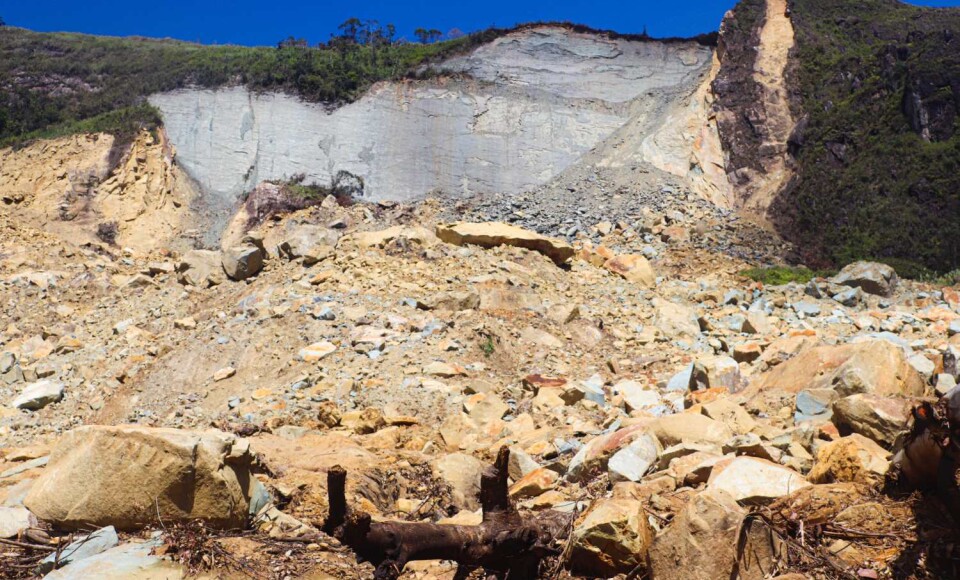
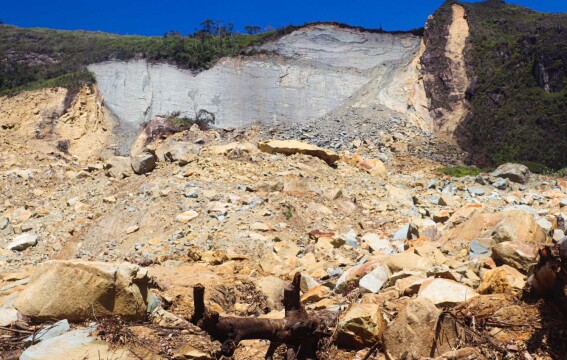
The landside, approximately the size of 18 football pitches, which swept through Enga province in the highlands of Papua New Guinea in late May, is no longer front-page news – but Red Cross have not forgotten the people affected by the disaster.
New Zealand Red Cross’ international delegate and emergency operations management specialist, Dallas Roy has been working in Papua New Guinea to support the humanitarian assistance to devastated communities, since early June.
The deadly landslide
The people of Yambali village, in Enga province in the heart of the country’s Highlands, were asleep when a massive landslide rumbled through their village at 3am on 24 May. An avalanche of boulders and earth buried hundreds of people and made many more homeless. Most communities in this remote area are subsistence farmers who rely on hunting and garden produce to feed their families and sell at markets.
The landslide blocked the main highway affecting almost 8,000 people who rely on the sole road into this region. Work has begun to bypass the massive landslide and reconnect the road again. Several clans are affected by this work and their land ownership needs careful consideration and negotiations with affected people. The provincial government is managing the bypass with Papua New Guinea’s Defence Force. It could take several more weeks to complete.
Meanwhile, displaced people are living on either side of the landslide in temporary shelters while negotiations continue about relocations.
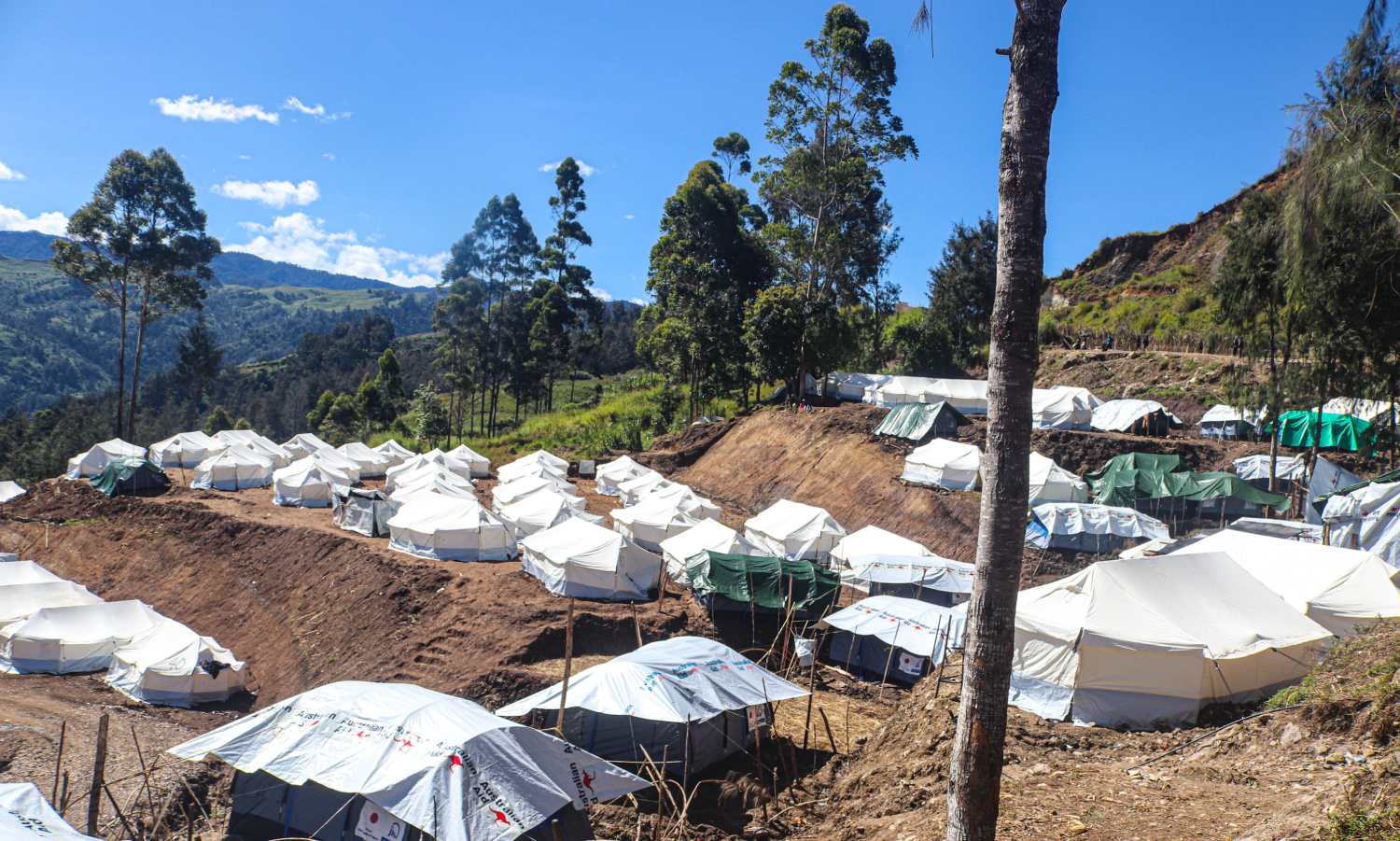
One of two care centres at the Enga landslide
Dallas’ work with Red Cross
On 17 June, Dallas travelled to Mount Hagen in the Western Highlands – a humanitarian hub for several agencies. He is working for the International Federation of Red Cross and Red Crescent Societies (IFRC). His deployment is funded by New Zealand Red Cross.
IFRC activated an emergency relief fund for this disaster in late May. “My job is to support the funding to Papua New Guinea Red Cross and support the planning and implementation of their humanitarian assistance for people affected by the landslide,” says Dallas.
“One of my first tasks was to support the National Society to mobilise volunteers to begin work on the ground. I have also joined humanitarian meetings with the United Nations, international non-government organisations, Papua New Guinea Red Cross and the International Committee of the Red Cross (ICRC) to focus on the needs of the affected people and understand what each organisation can do to support in a coordinated way.”
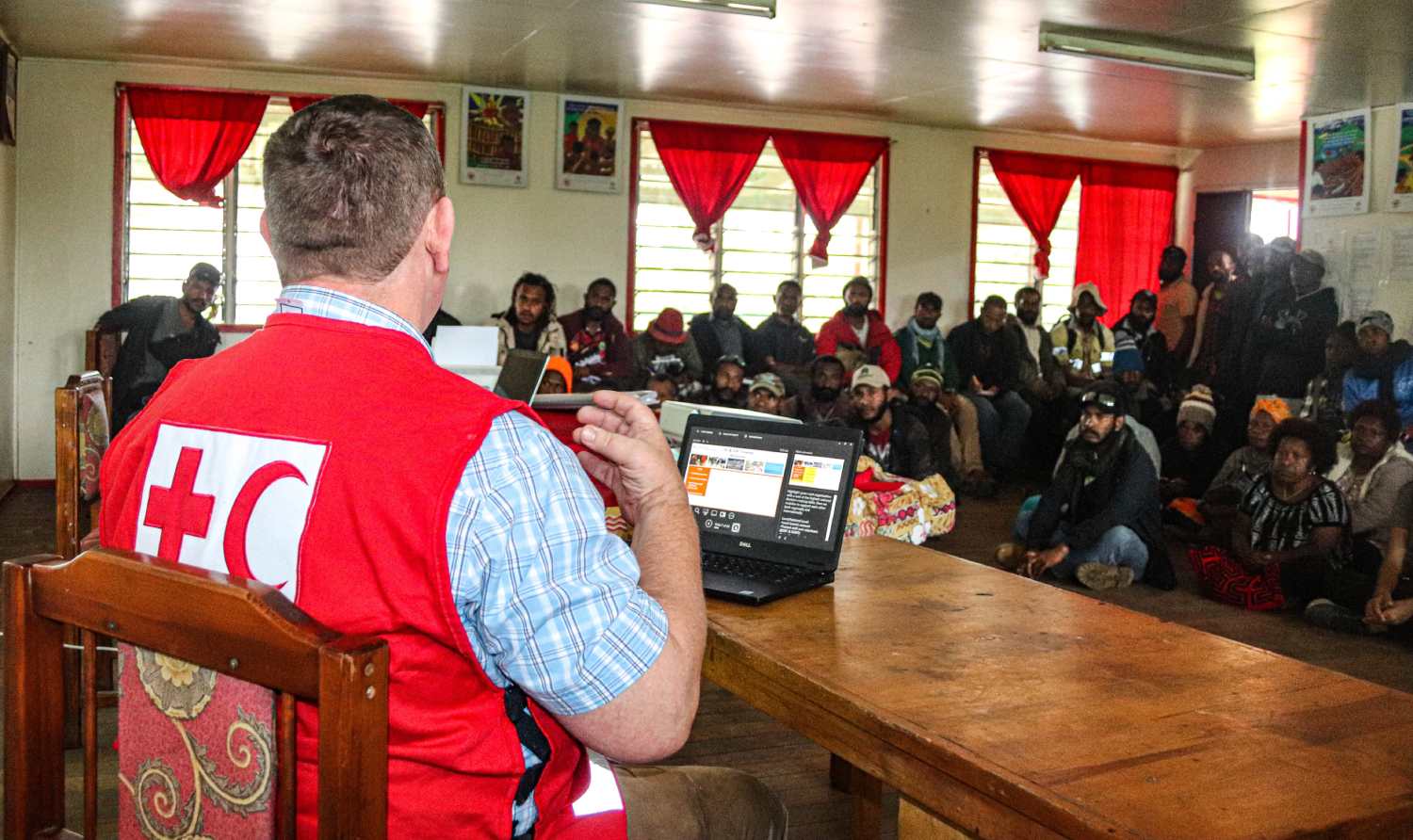
Dallas giving a talk to Papua New Guinea Red Cross members
Challenges for communities to recover
The landslide is in an area of high-security risk due to tribal conflicts. Two emergency care centres have been set up for affected people on either side of the slip, supporting different clans. Travel to the actual site is also difficult and requires close co-ordination with the International Committee of the Red Cross (ICRC) and IFRC Global Security, and Papua New Guinea authorities. Two Papua New Guinea Red Cross volunteers from the affected communities are in the care centres and registering the most vulnerable who are in need.
Moving into the recovery phase, including relocating displaced people, is challenging because of disputes over the compensation for "Haus Krai" (mourning) between provincial government and community leaders. Agreement is an important step to close the official mourning period which then enables families to relocate.
Volunteers from the Mount Hagen branch of Papua New Guinea Red Cross are supporting the affected population and going to the area. Dallas has supported the National Society organise a mental health and psychosocial support refresher course and mentoring the volunteers as they rotate in and out from relief work at the landslide.
“Many people have lost everything – their homes, livelihoods and loved ones. The volunteers are connecting and building relationships with the affected people located at the emergency care centres and collecting information on their needs. The volunteer teams also provide psychosocial support and refer people who need additional mental health support to appropriate health agencies.”
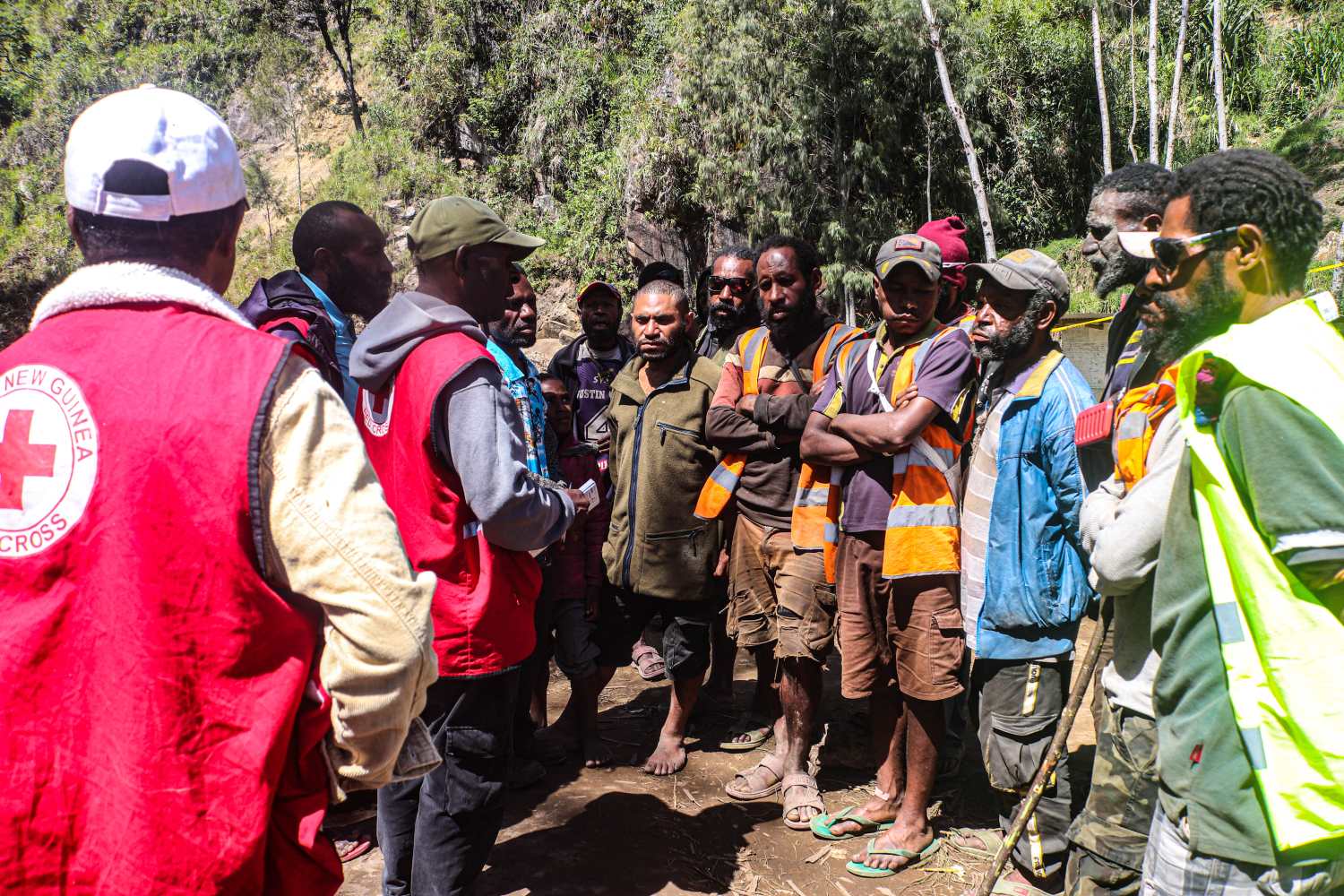
Papua New Guinea Red Cross volunteers talking to people affected by the Enga landslide
Red Cross shipment
Back in Port Moresby at the IFRC main country office, Dallas continues to support and coordinate humanitarian relief planning at a national level.
He is also overseeing the logistics of positioning a shipment of relief items from IFRC’s Brisbane warehouse. The items will be distributed to people affected by the landslide, when needed. A logistics delegate is working alongside Dallas to support with customs clearance, transporting and storage of the contents.
Dallas completes his work in Papua New Guinea in mid-August. He goes on to attend the developing Head of Emergency Operations workshop in Nairobi. He is one of 20 candidates who are progressing through this programme to be certified to lead IFRC global response operations.
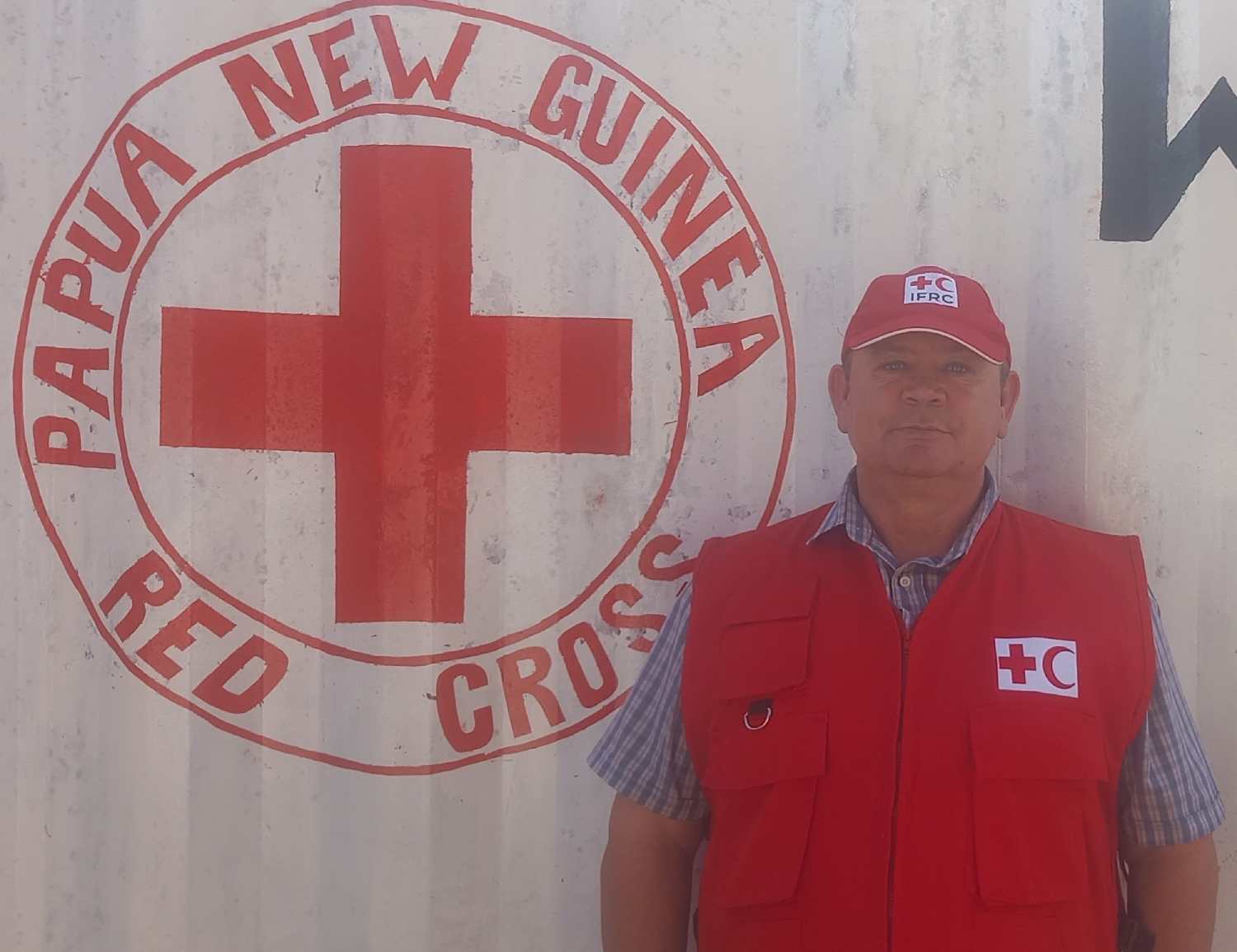
Our International Delegate and emergency management specialist, Dallas Roy working for IFRC in Papua New Guinea
More information
Our specialist international delegates
Our international delegates are ready to go to emergencies or disasters within 72 hours of a call. We have over 100 specialist international delegates from healthcare coordinators to operation Telecommunications specialists.
Learn more about becoming an international delegate:
Our International Delegate Programme
Find missing family
Our Restoring Family Links team is on standby to receive enquiries from people living in Aotearoa New Zealand who have lost contact with loved ones due to the disaster.
Donate to support our work
You can still donate to our Where the Need is Greatest Fund. Donations to this Fund support all our humanitarian work and help us respond to disasters and crises, wherever the need is greatest.
Give hope to people in need, donate to Where the Need is Greatest
Lead photo: The landside that swept through Enga province in the highlands of Papua New Guinea, late May 2024.
